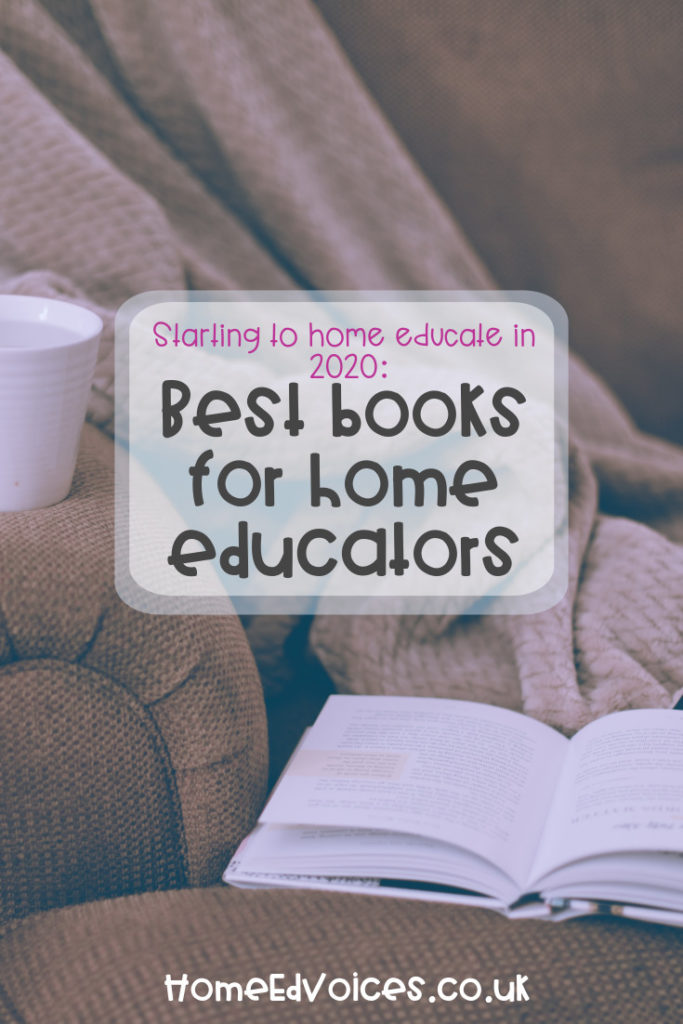Starting to home educate 2020: Best books for home educators
This blog post does not contain affiliate links because we think you should borrow books from your library if you can, or get them second hand or from where ever you personally want to buy books. Not just amazon because it might make us some money. You can read more about our affiliate policy here.
If you have, are currently, or intend to deregister your child from school this year, you may be researching some useful books to read to prepare you for the journey ahead. Katie and I thought we would offer our personal recommendations here.
But first a warning: Don’t try to read everything. Don’t give yourself a big stack of books on top of everything else you’ve got going on right now. Pick one book that appeals and start there. You can pin or bookmark this list, and come back and choose something else when you’re looking for another book further down the line.
Kate’s recommendations
My recommendations run the gamut from authors who champion unschooling through authors who offer a lot of structure. My degree is in early childhood development so I had already done a lot of reading around Montessori, Mason and Steiner and I appreciated being able to look at home education from multiple angles. These books offer further pedagogical angles.
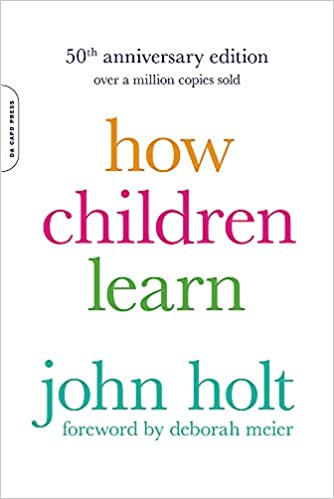
How Children Learn – John Holt
“…learning is as natural as breathing.” I read this book a long time ago, but as I recall, these are Holt’s observations on how children naturally gravitate toward figuring out the world around them. If you’re worried you won’t be able to ‘do enough’ for your child, this is a reassuring read.
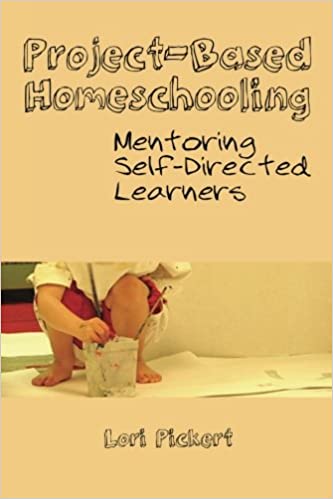
Project-Based Homeschooling – Lori Pickert
To my mind, project-based homeschooling is the next level up from unschooling. If your children obsess over new ideas, Pickert’s book will help you figure out how to harness that trait and make an educational experience out of it.
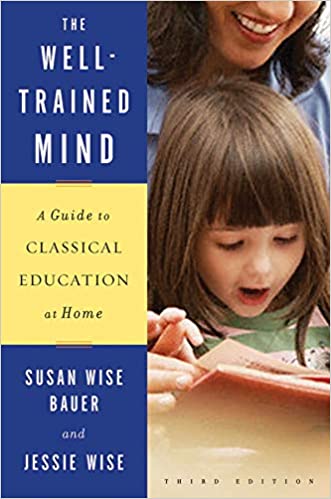
The Well-Trained Mind: A Guide to Classical Education at Home – Susan Wise-Bauer
This book falls on the highly-structured end of the home education spectrum. The Well-Trained Mind is based on the pedagogy of the trivium – that is that cognition develops in three stages referred to as the grammar, logic and rhetoric stages (think facts, connections, application/expression). These roughly correspond to KS2, KS3 and KS4, so if you’re comfortable with the school system this may be a familiar-feeling place to begin. Suggested timetables are included!
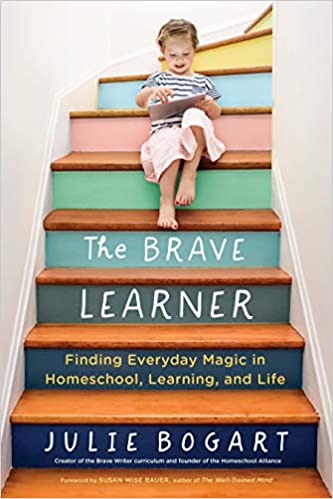
The Brave Learner: Finding Everyday Magic in Homeschool, Learning and Life – Julie Bogart
I don’t agree with everything in this book, but I still recommend it. I feel Bogart’s book is intended for the veteran homeschoolers who need a friend to bounce some fresh ideas around and reinvigorate a journey gone stale. But I also think this book makes for a good overall introduction to all the home education possibilities for newbies. Just don’t feel you have to make a note of everything. There is a lot in this book. Read it through once. Maybe highlight some things that speak to you. Put it on a prominent shelf and return to it when you need a veteran friend’s advice.
Katie’s Recommendations
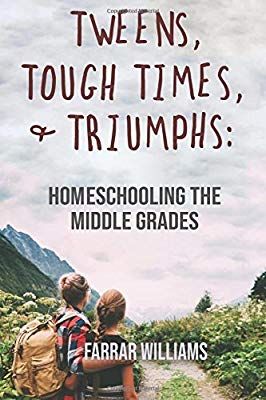
Tweens, Tough Times and Triumphs: Homeschooling the Middle Grades – Farrar Williams
I read this book early this summer because my eldest would be heading to secondary school this September if he actually went to school. Middle school is US equivalent of key stage 3, or years 7-9 in the UK system. This book gives a good overview of your child in this period of their lives – both their academic abilities, and what is going on developmentally for them. Like many books about homeschooling or home education, it includes information about different educational ideas and styles, so is a great pick for new educators with older children.
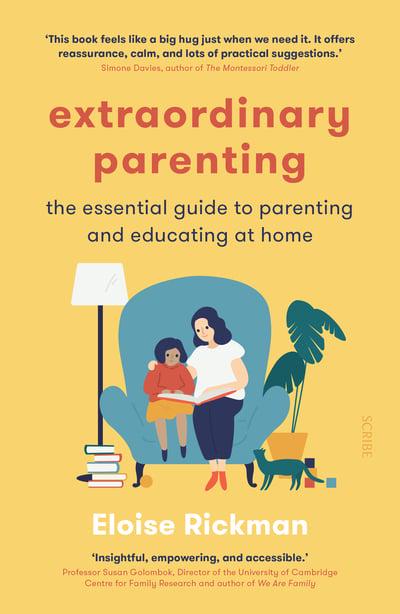
Extraordinary Parenting: The Essential Guide to Parenting and Educating at Home – Eloise Rickman
If you want a book that can actually make some useful suggestions about living, parenting and educating through a pandemic then Extraordinary Parenting is well worth reading. Home educating in 2020 is weird and can be lonely but this book reminds you of the things you can control to help you feel safe and to support a creative family culture even when things are hard, and without burning yourself out. You can listen to my podcast interview with Eloise here.
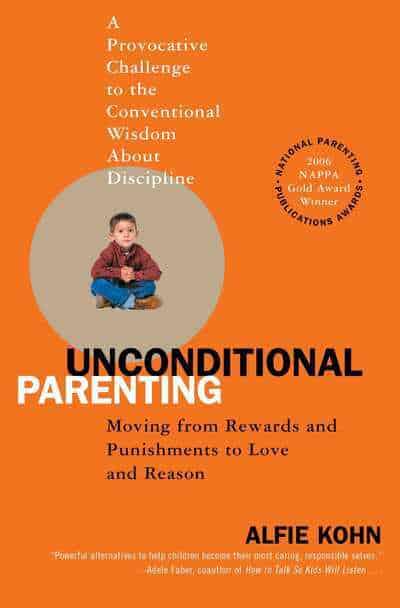
Unconditional Parenting: Moving from Rewards and Punishments to Love and Reason – Alfie Kohn
In home education the relationship between you and your child is at the heart of everything you do. It is the place where you need to start, and it creates the bedrock for the learning that you do as a family. Unconditional Parenting isn’t specifically a book about home education, but it is a useful book for helping you to practically unpick any hidden beliefs about conditional love that many of us have hidden away in our world view. It is full of encouragement to love the child in front of you for who they are, not who you want them to be.
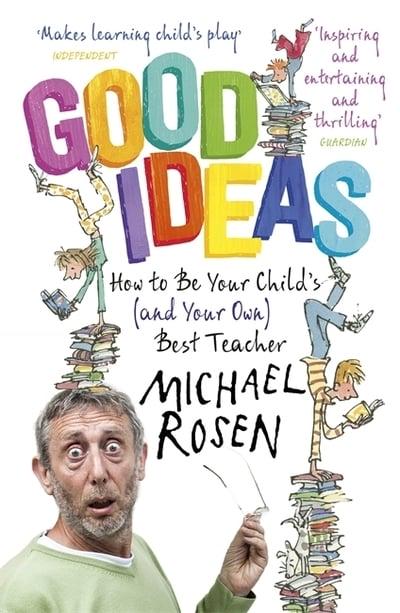
Good Ideas: How to Be Your Child’s (and Your Own) Best Teacher – Michael Rosen
I’ve become a bit of a broken record about this book. I mentioned it in the opening article in this series about starting to home educate, and I wrote a whole article going on about it earlier this year. But it genuinely is one of the most useful and inspiring book about family life that I have read.

Burnout: Solve Your Stress Cycle – Emily Nagoski and Amelia Nagoski
Burnout has nothing to do with home education, but it’s also one of the most important books on this list. Being a home educating parent is stressful. It’s full of joyful moments, but it is also a massive responsibility, on top of all the usual family and money and life responsibilities we all have. Add on top of that a pandemic, and on-going political, social and environmental crises and you have a recipe for seemingly unending stress. Burnout explains why stress builds up within you, and how to release it. It’s thoughtful and intersectional and the audio book is a delight. It was the best book I read last year and if I could press a copy into your hands in person I would because you are important too, and your health and welbeing while home educating is crucial. (I’ve talked about it before, but the authors have an excellent podcast on the same subject.)
